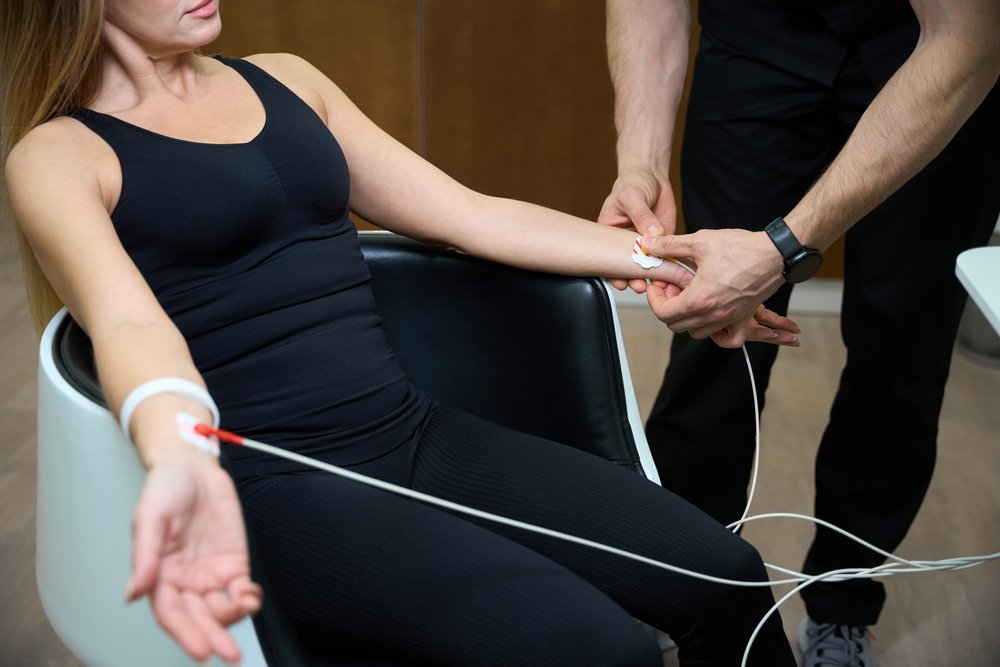In the world of medical diagnostic tools, nerve conduction velocity (NCV) is a crucial tool in assessing the functionality of the nervous system. From identifying nerve damage to pinpointing the underlying causes of various neurological conditions, NCV plays a pivotal role in modern healthcare.
But what exactly is NCV, and how does it contribute to your diagnosis?
What is Nerve Conduction Velocity (NCV)?
NCV tests measure how fast electrical impulses travel through a nerve. It’s a quantitative assessment of the integrity and functionality of the peripheral nervous system, which is made up of the nerves outside of the brain and spinal cord. The procedure involves stimulating a nerve with small electrical pulses and recording the time it takes for the impulse to travel between two points along the nerve.
How is NCV Performed?
During an NCV test, electrodes are placed on the skin overlying the nerve that’s being evaluated. One electrode delivers a small electrical impulse to stimulate the nerve, while another electrode records the resulting electrical activity. By analyzing the speed and strength of the nerve’s response, healthcare professionals like those at Parker Performance Institute can determine the NCV – which is essentially the speed at which your nerves work.
What Does NCV Diagnose?
NCV testing can help diagnose a range of conditions, including the following:
- Peripheral Neuropathy. Peripheral neuropathy refers to the damage or dysfunction of the peripheral nerves, often causing symptoms like numbness, tingling, weakness, and pain in the affected areas. NCV can help diagnose and characterize peripheral neuropathies, guiding appropriate treatment decisions.
- Carpal Tunnel Syndrome. Carpal tunnel syndrome is a common condition characterized by compression of the nerves in the wrist, leading to symptoms like pain, numbness, and weakness in the hand and fingers. NCV testing can help to confirm the diagnosis by assessing the nerve function.
- Guillain-Barré Syndrome. Guillain-Barré syndrome is a rare autoimmune disorder that affects the peripheral nerves, resulting in muscle weakness and paralysis. NCV testing is instrumental in diagnosing and monitoring the progression of this condition.
- Radiculopathy. Radiculopathy occurs when a spinal nerve root is compressed or irritated, causing pain, weakness, and numbness along the nerve’s pathway. NCV testing helps identify the location and severity of nerve root involvement, aiding in treatment planning.
- Muscle Disorders. NCV testing can also provide valuable information about certain muscle disorders, such as myasthenia gravis and muscular dystrophy, by helping to monitor the communication between nerves and muscles.
Understanding your NCV is vital to understanding the function of the peripheral nervous system. By measuring the speed of electrical impulses along nerves, NCV testing helps healthcare professionals diagnose a wide range of neurological conditions, from peripheral neuropathies to muscle disorders. As technology advances and our understanding of the nervous system deepens, NCV remains an indispensable tool in the diagnosis and management of neurological disorders, improving patient outcomes and quality of life.
Schedule an evaluation with Parker Performance Institute to see if NCV testing is right for you!



